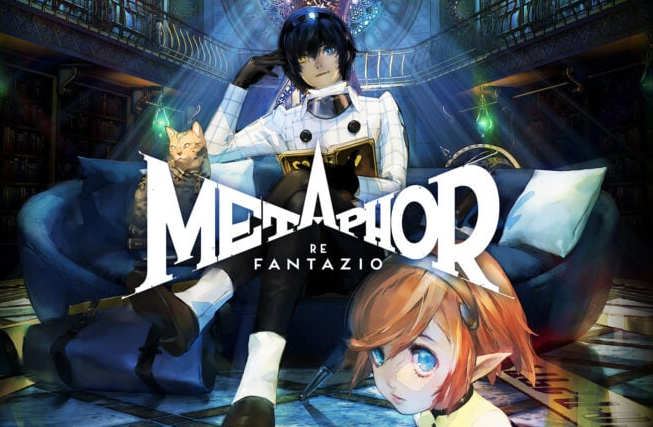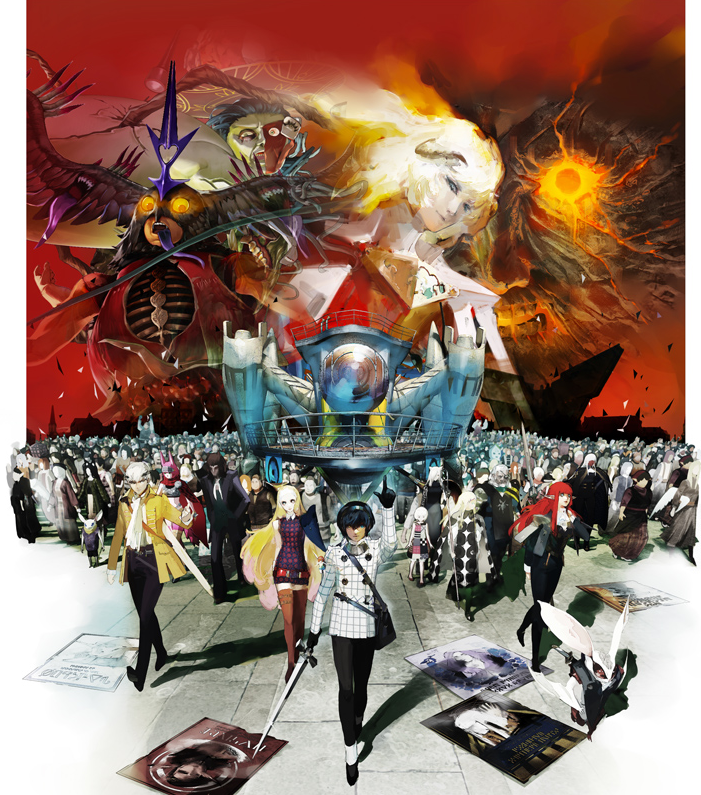Glory to Gaming: The Refreshing JRPG Experience

Metaphor ReFantazio encapsulates the idea of a story being lived out in reference to a world that may emerge one day, many centuries into the future. In some ways, it acts as an escape, much like the metaphoric fantasy it tries to establish, but in other ways, it ironically resembles the distant, dark, and dystopian world of ours to begin with.
Following a story about a boy who aims to save the dying prince, Metaphor ReFantazio mimics a medieval fantasy epic that aims to expand with a clever ensemble and heightened action combat within the JRPG formula. The quality of life upgrades made the game a much smoother experience compared to Persona’s more stressful intricacies of piecing together what timeline to follow.
In Metaphor, you can progress social links the moment they become active, and not waste time leveling them up to see if you have enough points to unlock the next progress sequence. This allows me to spend my time leveling up my royal virtues, which are the social stats in this game, and otherwise explore dungeons for quests and loot.
The combat is… interesting to say the least. I love how you can instantly kill any enemy that is 3 levels below you, so that helps with the pace of the game, instead of becoming a slog. And allows you to focus on more memorable battles.
Story wise. Metaphor starts off with a blast, both narratively and thematically, but the game just over stays its welcome both in the middle and end. There is definitely intrigue, but I personally felt the game ran way too predictably upon almost every major beat. So while watching the obvious does feel a bit satisfying, I’d have preferred more surprises and more high moments with the music flowing into the scene.
Which leads me to another more contentious area… The music. Does the game have quality music? Yes. But I think it lacks the dynamics let allows the music to take over the scene, especially as per the tracks in Persona 5 where the music absorbs you into the experience and how the lyrics also fit the game thematically. Metaphor’s music is more diverse, and while there are some great tracks, especially the music that sounds like it’s from another language altogether, almost stripped from Nier: Automata, it didn’t hook me as I wish it did. But it does play well in some moments, time to time.
From a game design perspective, the dungeons aren’t as creative as Persona 5’s outside one notable one and the mini dungeons are slogs which could have been handled better too. It helps that the combat is fun and improved, though the lack of the “Baton Pass” feature from Persona and the direct response of hitting a weak point is sorely missed. But I still do like how they played more deeply with the turn system, with how you can keep getting more turns or even lose out on turns, and so you could wear items to make your enemies hit Blocked or Reflect on your team to extend fights.
The world is definitely pretty, and it has style, but I think I want Atlus to strive for a great mix on what it means to explore its world. The actual movement and exploration feels bland outside the dungeons, and I wish the cities had more flexible flavor to them.
Now, the most serious topic when it comes to any Atlus game is the characters. I think the group as a whole was good, but I think their social link stories could have been a lot better.
This part now goes a bit into spoilers.
Strohl and Heismay’s stories were the best of the bunch when it comes to the main group. Strohl’s directly refers to his past and the issues it has caused him and how he feels like he must understand his parents, and Heismay’s is likely the best in the game as it tackles multiple aspects of his life whether that is his relationship with his town, his failures and settlement towards his son, and his current days as an outcast from the knights order. This all accumulates deeply in him trying to find meaning in what his life and failures have brought forward. So the experience of journeying along with Heismay feels one with a much more subtle touch.
Alonzo and Bardon also have more metaphorical meaning to their quests. As the former is about what it means to redeem yourself and the latter is about gauging perception and how to use it. These have some key learnings.
But the other social links are way too in your face about someone being bad or something having gone wrong that it doesn’t feel like it touches upon the same fundamental meaning. I can understand that the game was trying to address more formal political issues and some that involved growing up, but if the rest also touched upon deeper personal regrets or wants, they would have left a stronger impression.
One fundamental aspect I want to touch upon is the game’s themes and focus on anxiety. I do not believe the game actually touched upon anxiety as much as the game tells you it does or actually wants you to believe it is. Just having a status effect that is forcefully place upon you or the characters speaking about it without feeling it doesn’t add any weight to it.
If anything, the social links should have explored how each character tackles and experiences anxiety, yet only Heismay, Strohl, and to some degree Bardon express some sort of deeper negative expression as a consequence of their actions or the actions of others they now have to rectify.
I’d say, the more central theme the game revolves around is the idea of archetypes. Different characters fill different roles in this world. The main villain acts as this sore of agency, the head of the church has this passive, sinister influence, and the cast members of the group play the part of knight, noble, guiding fairy, etc. I believe the game does well to represent how each character is portrayed and then also flows this concept into the battle system in how you fuse archetypes to unlock new powers. Hence, it ends up feeling a bit more like a D&D setup than one seen in other JRPGs. But unlike past Atlus games, Metaphor allows you to change the powers of your characters to whatever you wish, but still leaves one core element of identity for their strongest archetypal power which does resemble their character at heart best.

Metaphor ReFantazio Review — [Fantastic]
Metaphor is still a fantastic addition to the JRPG space as an accumulation of Atlus’ learning about combat and exploration, and its tight experiences with narrative and character. But it runs overly long, especially with its limited perspective on villains and intentions, that eventually dries the well too soon.
